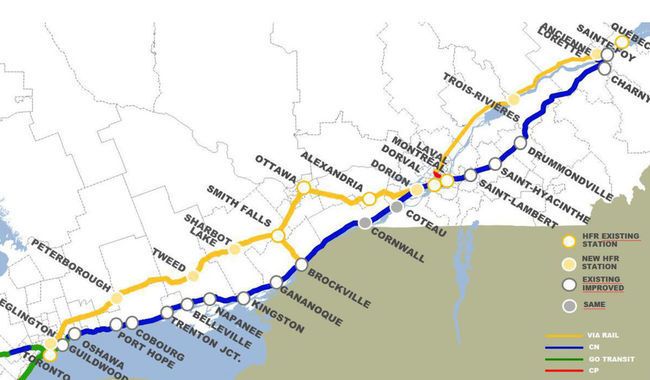Analysis Of Ticketmaster's Handling Of Oasis Tour Tickets: A Consumer Protection Perspective

Table of Contents
Excessive Demand and Website Crashes
The sheer scale of demand for Oasis reunion tour tickets far exceeded even Ticketmaster's expectations. The website, ill-equipped to handle the massive influx of traffic, promptly buckled under the pressure. Countless fans reported encountering a cascade of technical glitches and website crashes, preventing them from even attempting a purchase. This failure to provide a stable platform for ticket sales directly impacted consumers' ability to access tickets fairly.
- Error messages: Generic error messages left fans unsure if they were in a queue or had been unsuccessful.
- Long wait times: Hours spent in virtual queues only to be met with failure were commonplace.
- Inability to access the website: Many fans couldn't even reach the Ticketmaster site due to overwhelming traffic.
- Failure to complete purchases: Even after navigating the wait times and website issues, numerous fans reported their purchases failing to complete.
The lack of transparency and the sheer scale of these failures suggest significant shortcomings in Ticketmaster's infrastructure and preparedness for high-demand events. While precise statistics on the number of failed transactions remain elusive, anecdotal evidence points to a widespread failure that left countless fans disappointed and frustrated. The Ticketmaster website crash during the Oasis ticket sale failure became a prime example of the problems inherent in online ticket purchasing.
Allegations of Bot Use and Scalping
The chaotic ticket sale fueled allegations of widespread bot use and scalping. Many believe that sophisticated bots exploited vulnerabilities within Ticketmaster's system to acquire a significant number of tickets, leaving legitimate fans empty-handed. This activity severely impacted the fairness and accessibility of the ticket sales process.
- Inflated resale prices: Tickets quickly appeared on secondary markets at exorbitant prices, far exceeding their face value.
- Reports of bots acquiring tickets in bulk: Numerous reports surfaced detailing the suspicious acquisition of large quantities of tickets by automated systems.
- Lack of effective preventative measures: Critics argue that Ticketmaster failed to implement adequate security measures to prevent bot activity and scalping.
Ticketmaster's responsibility in preventing bot use and ticket scalping is a key area of concern. The lack of effective anti-bot measures and the subsequent appearance of inflated prices on the secondary market raise serious questions about the platform's ability to protect consumers from unfair practices.
Dynamic Pricing and Perceived Unfairness
Ticketmaster's controversial dynamic pricing model came under intense scrutiny during the Oasis ticket sale. The system, which adjusts prices based on demand, led to accusations of exorbitant pricing, with some tickets costing significantly more than those of previous Oasis tours.
- Examples of unusually high ticket prices: Anecdotal evidence abounds of prices far exceeding what fans considered reasonable.
- Comparison with prices of similar events: Comparisons with other comparable concerts showed drastic price discrepancies.
- Public perception of Ticketmaster's pricing practices: The public's perception of Ticketmaster's pricing model was overwhelmingly negative.
The fairness of dynamic pricing in high-demand situations is debatable. While proponents argue it reflects market forces, critics contend it exploits fans' desperation, resulting in exorbitant ticket prices that are inaccessible to many.
Ticketmaster's Response and Consumer Protection Measures
Ticketmaster's response to the public outcry was largely met with criticism. While they issued statements acknowledging the issues, their actions to compensate affected customers were deemed insufficient by many.
- Public statements made by Ticketmaster: These statements often lacked specific details or concrete solutions.
- Actions taken to compensate affected customers: The compensation offered was widely viewed as inadequate.
- Improvements implemented to prevent future issues: While Ticketmaster promised improvements, the specifics remained vague.
From a consumer protection standpoint, Ticketmaster's response fell short of expectations. Their failure to prevent bot use, address website crashes, and implement effective measures against ticket scalping points to a lack of adequate consumer protection measures. The inadequacy of their Ticketmaster customer service response further underscores this failure.
Conclusion: Analysis of Ticketmaster's Handling of Oasis Tour Tickets: A Consumer Protection Perspective
This analysis reveals a significant failure of consumer protection during the Oasis ticket sale. Ticketmaster’s inadequate infrastructure, insufficient security measures, and arguably exploitative pricing practices resulted in a chaotic and unfair ticket sales process. While they acknowledged issues and promised improvements, their response was largely reactive and insufficient to address the widespread frustration and anger of fans. The lack of transparency and accountability raises serious questions about their commitment to consumer protection. Did they meet their responsibility? The evidence suggests a resounding "no".
Share your experiences with Ticketmaster and help us continue the conversation on improving Analysis of Ticketmaster's Handling of Concert Tickets: A Consumer Protection Perspective. Let's demand better consumer protection in the online ticket sales industry.

Featured Posts
-
 Alastqlal Qst Ndal Alsheb
May 30, 2025
Alastqlal Qst Ndal Alsheb
May 30, 2025 -
 Setlist Fm Potencia La Experiencia Del Fan A Traves De La Integracion Con Ticketmaster
May 30, 2025
Setlist Fm Potencia La Experiencia Del Fan A Traves De La Integracion Con Ticketmaster
May 30, 2025 -
 Compra De Boletos Transformada Ticketmaster Presenta Virtual Venue
May 30, 2025
Compra De Boletos Transformada Ticketmaster Presenta Virtual Venue
May 30, 2025 -
 Quebec Marketing Firm Receives 330 000 From Via Rail For High Speed Rail Campaign
May 30, 2025
Quebec Marketing Firm Receives 330 000 From Via Rail For High Speed Rail Campaign
May 30, 2025 -
 Raducanu Reaches Miami Open Quarterfinals
May 30, 2025
Raducanu Reaches Miami Open Quarterfinals
May 30, 2025
